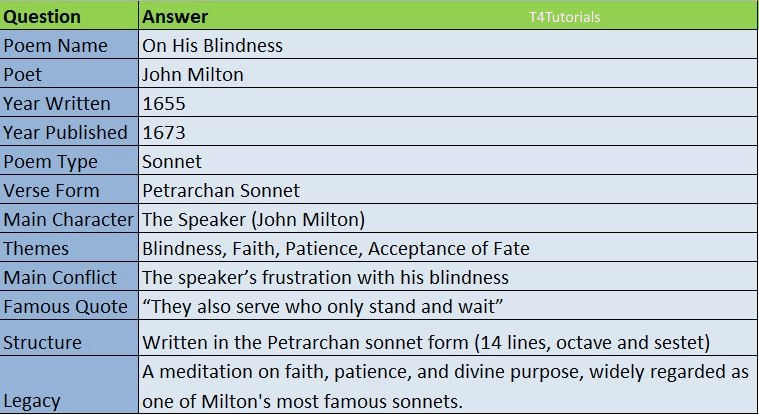Summary:
On His Blindness is a sonnet written by John Milton in which he reflects on the difficulties he faces due to his blindness. The poem is deeply personal, expressing Milton’s feelings of frustration and helplessness as he contemplates his inability to use his talent for writing because of his blindness. However, the poem also conveys a sense of resignation and faith in God’s will. Milton concludes that it is better to serve God in whatever way possible rather than in the way one desires, and he resolves that God does not need his work to be glorified—God can use any means to achieve divine purposes. The poem, therefore, emphasizes the themes of patience, faith, and acceptance of one’s fate.
10
Score: 0
Attempted: 0/10
Subscribe
| Question | Answer |
| Poem Name | On His Blindness |
| Poet | John Milton |
| Year Written | 1655 |
| Year Published | 1673 |
| Poem Type | Sonnet |
| Verse Form | Petrarchan Sonnet |
| Main Character | The Speaker (John Milton) |
| Themes | Blindness, Faith, Patience, Acceptance of Fate |
| Main Conflict | The speaker’s frustration with his blindness |
| Famous Quote | “They also serve who only stand and wait” |
| Structure | Written in the Petrarchan sonnet form (14 lines, octave and sestet) |
| Legacy | A meditation on faith, patience, and divine purpose, widely regarded as one of Milton’s most famous sonnets. |